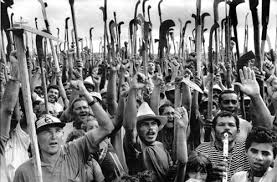American misperceptions of Iraqis
A recent comparison of opinion polls in the US and Iraq found that:
Americans... underestimate the extent to which the Iraqi public soundly rejects terrorism as they define it. In the January poll—a virtually unanimous 99 percent of Iraqis said it was a good idea for Iraqi leaders to have agreed in a statement at an Arab League conference late last year that terrorism should be rejected. However, only 14 percent of Americans correctly identified a "large majority" as the proportion of the Iraqi public that approved of the statement. Another 35 percent estimated that it would be a majority. Forty-six percent of Americans thought that half or less of the Iraqi public approved of the statement rejecting terrorism.
Naturally some may be perplexed by the overwhelming rejection of terrorism coupled with support among nearly half of Iraqis for attacks on US-led forces. It is clear that many Iraqis do not define attacks on US-led forces as terrorism. According to most expert definitions of terrorism, this is valid—terrorism is generally defined as attacks on civilians, not an occupying military force.
["Comparing Americans and Iraqis," World Public Opinion, March 24, 2006]
Indeed, quoting from the first news article I found in a Google search, the statement made at the Arab League conference,
condemned terrorism, but was a clear acknowledgment of the Sunni position that insurgents should not be labeled as terrorists if their operations do not target innocent civilians or institutions designed to provide for the welfare of Iraqi citizens.
["State Department denies Iraqis back terrorism," Associate Press, Nov. 22, 2005]
It's not hard to see how the distorted understanding of terrorism and resistance in the American mind (shaped in large part by the media of course) could influence attitudes towards the occupation and US foreign policy in general. It's not clear to what extent the results are due to a belief that attacking the occupying forces is terrorism versus a belief that large numbers of Iraqis sympathize with genuine terrorism.
Another finding of the poll comparison was that:
Americans underestimate the extent to which Iraqis believe the overthrow of Saddam Hussein was worthwhile. Three-fourths of Iraqis (77%) said in January that ousting Saddam was worth it despite any hardships they may have suffered since the 2003 invasion, while 22 percent said it was not worth it. Fifty-five percent of Americans underestimated this support, assuming that most Iraqis feel it was not worth it (22%) or that Iraqis are evenly split on the question (33%). Forty-four percent of Americans correctly assumed that most Iraqis say it was worth it. (It should be noted, though, that among Iraqi Arab Sunnis, large majorities regret the overthrow of Saddam, and that some Americans may have been influenced by that when they opted for the position that views are evenly split.)
Such results seem to be fairly consistent with earlier polls of Iraqi attitudes. Iraqi opinion seems to be, basically, widely shared dislike and distrust of the US government coinciding with a feeling that the US invasion (though undertaken for imperial reasons) had net positive side-effects. The exception is the Sunnis, who were less oppressed under Saddam than most Iraqis and are now bearing the brunt of the violence of the occupation.



0 Comments:
Post a Comment
<< Home